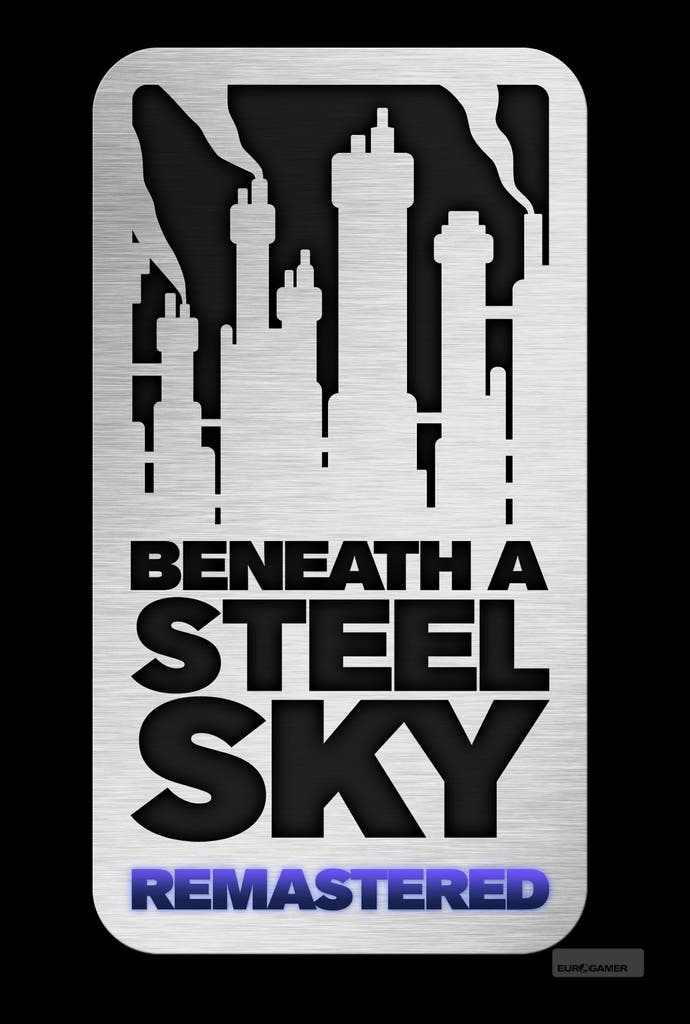Beneath A Steel Sky - Remastered
Charles Cecil on resurrecting the classic adventure.
If we had a new point-and-click adventure game for every time someone said: "That was definitely the last point-and-click adventure game," then we'd pretty much be where we are today. Long pronounced dead, the adventure game never really departed. From Broken Sword 4 to Grim Fandango to Zack & Wiki, new releases in the genre may be sparse but they are undeniably steady. And as a slew of LucasArts and Sierra classics make their way onto the Steam download service, just as Monkey Island introduces a new generation of console gamers to insult sword-fighting, the genre is enjoying, if not a resurrection, then certainly something of a resurgence.
Beneath A Steel Sky (BASS) is the latest venerable adventure game to undergo a nip and a tuck in preparation for re-release. While less iconic than some of the LucasArts big-hitters, it is nevertheless the most widely played adventure game of all time. Nine years after its original release in 1994, British developer Revolution Software released the game's source code as freeware, to be offered for free to all users of ScummVM, the popular adventure game emulator. As a result, millions have played it. So why now choose to bring it to the iPhone? And why charge players for the privilege? By combining a mobile telephone, a map and a diary, we solved these puzzles and more at a meeting with the game's creator and MD of Revolution Software, Charles Cecil. And when it comes to talking to the grandfather of the adventure game about his genre's future, passions run high.

"Everything is f***ed up." Something dark flashes behind Cecil's normally kind eyes and his bald pate turns a darker shade of rosy. "When it comes to retail, everything is f***ed up, all the way down the line. If we sell a game in a shop, the retailer takes 40 per cent of the cover price, the format holder takes 15 per cent and the publisher pays us 20 per cent of what's left. That money has to be set against our development costs, so you can imagine how many copies of a game we have to sell to recoup. But on iPhone we receive 70 per cent of the game price immediately and we can sell direct to our audience. So we can charge a fraction of the price of a boxed product."
So is this re-release just a quick way to make a quicker buck? "Not at all. We've put a lot of effort into this BASS port," he explains. "It's not shovelware. As with Broken Sword: Director's Cut, we've added content that I think makes it a very justifiable and worthwhile project." That new content includes, amongst other things, fully animated cut-scenes, notable for being created by renowned comic book artist Dave Gibbons. In motion the sequences are beautiful, perfectly capturing the game's dystopian ambiance. But the proposed $2-3 asking price for the game isn't all being spent on new art and re-sampled dialogue. Rather, as Cecil is quick to point out, buyers are investing in the genre's future.
"Yes, you can jailbreak your phone and play the game for free. But if you like the game and like the kind of games we make, then pay us a little bit of money and, if it's a big enough success, we can reinvest the funds. We can start to look at a potential BASS sequel. You know, I think a massive part of the piracy problem is due to a broken-down relationship between game makers and consumers. There's no respect between the two parties anymore. So I'm very excited at the prospect of repairing the relationship. I think this is the model we'll take with our future games. If you like adventures and like what we write, then please work with us. We're looking at ways of including fans names in future games and so on. It's more exciting than ever before. It reminds me of the early eighties where anything seemed possible for smaller game-makers."


